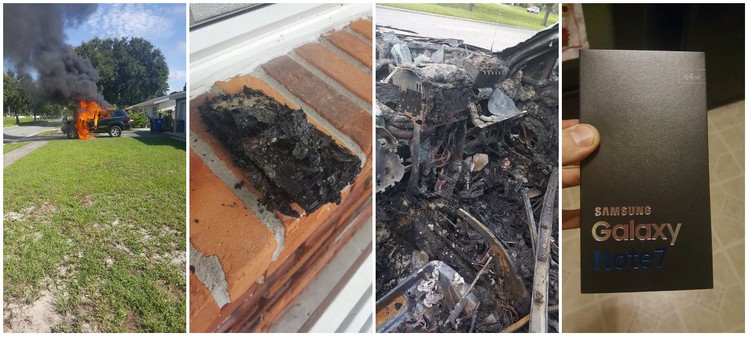Samsung offloaded shares of its 4 non-core businesses for about $890 million in total trying to make up for the losses of the biggest-ever device recall in the smartphone industry.
The giant smartphone manufacturer revealed the major sale of its shares of Seagate Technology PLC (NASDAQ: Seagate Technology. [STX]), a computer-drive producer, a chip maker Rambus Inc. (NASDAQ: RMBS), a Dutch semiconductor equipment manufacturer ASML Holding NV and the Japanese electronics company Sharp Corp. (OTCPK: SHCAY).
The yesterday's statement says that Samsung (OTC: SSNLF) has already sold off about 50% of its stake in ASML as well as entire stakes in Seagate (4.2%), Sharp Corp. (0.7%) and Rambus Inc. (4.5%). The company's spokesperson told Reuters that the approximate sum of the deal exceeded 1 trillion won (about $888 million). The Wall Street Journal adds that the large chunk of the total proceeds comes from the sale of 6.3 million shares of ASML Holding for about $676 million.
According to the WSJ, Samsung is now getting rid of its non-core businesses such as the aforementioned ASML, Seagate, Sharp Corp. and Rambus, that are not bringing desired profits any longer. The manufacturer has purchased significant stocks in these companies as part of its business expansion in the past decade.
The experts believe that the reason behind this abrupt sale is the scandal around Samsung's recall of its Galaxy Note 7 devices that has been named the largest recall in the history of the smartphone industry. The recall was initiated by the manufacturer after receiving multiple user reports complaining about overheating and even exploding of the batteries in Samsung's high-end phones. Over the past weeks, multiple testimonials of Galaxy Note 7 users circulated around the Internet, with the damages caused by the inflamed batteries going as far as setting cars on fire. In addition to that, the American Federal Aviation Association has issued a statement asking travellers not to bring their Samsung smartphones on board in the luggage as the devices are potentially inflammable.
Since the beginning of the month, Samsung has been recalling the affected devices in 10 markets, yet it was criticized for not providing the public with sufficient communication about the matter. Last Thursday, the American Consumer Product Safety Commission imposed a formal recall of all Galaxy Note 7 devices in the country, only adding pressure to the situation. By now, the company has received over 90 reports of malfunctioning batteries in the U.S. alone, over 80 of which involved property damage and burns, reported Reuters. The recall is predicted to cost Samsung over $1 billion and enormously hit the company's ambitious business plans.
The scandal is also a big challenge for Samsung's customer trust as the company has been praising itself for superior manufacturing process of its devices. The "notorious" Galaxy Note 7 is the brand's latest high-end device with a price tag of over $800. Bloomberg's experts say that the device was meant to directly compete with Apple's (NASDAQ: Apple [AAPL]) newest iPhone 7 models and was "rushed" into production to hit the market before Apple. As Samsung's suppliers were pushed to meet strict deadlines, the battery production process was significantly overlooked. The experts say that not only it didn't help Samsung to win the race with Apple but dragged the company a couple of years behind.
According to Reuters, Samsung has sold more than 2.5 billion faulty devices. At the moment, the sales of Galaxy Note 7 are on hold. After several weeks of technical investigations, the company commented on the reason behind the battery malfunction:
“Based on our investigation, we learned that there was an issue with the battery cell. An overheating of the battery cell occurred when the anode-to-cathode came into contact which is a very rare manufacturing process error. We are working with multiple suppliers to ensure that a rigorous inspection process is conducted to ensure the quality of our replacement units and we do not anticipate any further battery issues."
Upon the announcement of the recall plans, Samsung stock has experienced the worst drop in the decade. In just 2 days, the stock lost 10.61% of its value while the company's market capitalization shrank to $226.375 billion losing over $22 billion, reported Bloomberg. The analysts predict the long-term losses to reach $200 million.
"The notion is that this could have great impact to the Samsung brand almost immediately. Where we could not see not the long term degradation around the notion of safety around what is a Samsung product, but the immediate reaction where the users of the devices can't use the devices anymore. The selloff in Samsung shares goes far beyond the squishy notion of brand problems," commented Corey Johnson from Bloomberg.
The company fears that the damaging effect of the battery scandal around the Galaxy Note 7 devices may further spread to other Samsung models making the situation even worse.


